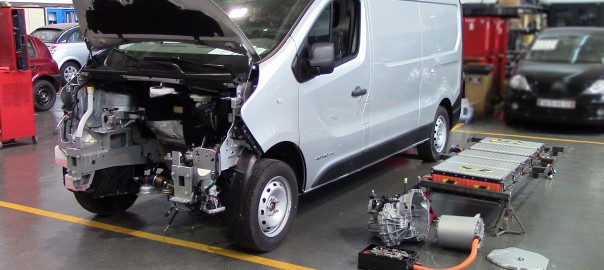Carwatt presents a unique automotive application for second-life batteries from electric vehicles
On the sidelines of the COP21 summit, in the Solutions Gallery running from 2 to 9 December 2015 in Le Bourget near Paris, Carwatt and its partners —Renault, Paris City Council, BPI France, the Alès École des Mines Engineering School, and the Bobigny Business Campus — are showing a very special electric Renault Trafic. This prototype vehicle, the only one of kind in the world, is powered by second-life lithium-ion batteries recycled from Renault electric cars.

Circular economy at work with electric vehicles
When, over time, the batteries of a Renault electric vehicle fall the performance threshold specified for their initial automotive power duty (around 75% of initial capacity), they can still provide valuable service in “second-life” applications before end-of-life disposal at a recycling centre. Experiments are already under way on power storage applications, for example.
Carwatt develops innovative applications for using these batteries to convert used urban commercial vehicles into electric vehicles. In giving a second automotive life to these batteries, Carwatt provides a good illustration of the founding principles of the circular economy, in that the whole-lifecycle battery value is optimized through successive usages.
Lower pollution and less expense
Electric conversion of urban commercial vehicles reduces investment levels as well as makes a concrete and immediate contribution to reducing urban pollution levels, since 94% of commercial vehicles are diesel-fuelled. In 2016, Carwatt and Paris City Council will be experimenting with other Renault commercial vehicles converted to run on electricity.
Source: Renault Media

One thought on “Second-life batteries used in electric van”